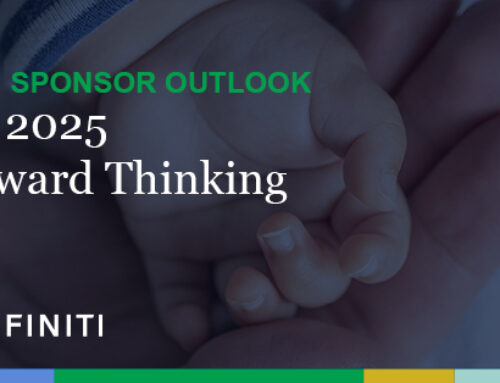VOL 4: NOTICE 2020-50
The CARES Act, signed into law on March 27, 2020, contained many provisions that provided relief to retirement plans and their participants.
The IRS issued much-needed guidance to clarify some of the CARES Act’s (the Act) requirements. Following is a discussion of two key provisions updated by Notice 2020-50, issued June 19, 2020: coronavirus-related distributions (CRDs) and plan loans. The Notice expanded the definition of a “qualified individual,” and also addressed the taxation and recontribution of CRDs.
Coronavirus-Related Distributions
Prior to reaching age 59½, participants in defined contributions plans, such as 401(k)s, can generally only withdraw funds from their accounts due to hardship or disability. If they do succeed in meeting these conditions, they have to pay ordinary income taxes on the amount withdrawn. Further, in the case of hardship withdrawals, participants must meet strict conditions to qualify, and may be subject to a 10% early withdrawal penalty.
With the Act, the IRS expanded participant access to their 401(k) funds, even if they do not qualify for hardship withdrawals. The rules now allow participants to take CRDs under relaxed rules:
- CRDs are distributions taken:
- By “qualified individuals”
- Between January 1 and December 30, 2020
- CRDs are liberally capped at $100,000 per qualified individual (including all retirement plans and IRAs).
- CRDs can be taken from a beneficiary’s retirement account.
- CRDs are exempt from the 10% early withdrawal penalty.
- CRDs are exempt from the mandatory 20% tax withholding applied to distributions eligible for rollover.
- Taxes due on CRDs may be paid entirely in the year of distribution or pro-rata over a 3-year period (2020-2022).
- CRDs are eligible for re-contribution into the individual’s retirement plan or IRA within three years of the date of the distribution and the individual may file amended tax returns to recover taxes previously paid on the CRDs.
- Plan sponsors may rely on certification by qualified individuals that they are qualified (a sample certification is included with the Notice); however, to get the 10% penalty relief from the IRS, the participant must actually meet the eligibility requirements.
Note: plan sponsors are not required to offer CRDs or the opportunity to repay them, but if they do, they must amend their plan by the last day of the first plan year beginning on or after January 1, 2022.
Plan Loans
The Act provided for, but did not require, plan sponsors to allow a one-year suspension of loan repayments by qualified individuals for loan payments due between March 27 and December 31, 2020. There’s been a lot of confusion, however, as to how the one-year suspension period would be applied and when repayments should restart.
Thankfully, Notice 2020-50 provided a safe harbor for CARES Act loans, which greatly helps to clarify the requirements:
- Repayments are to resume on the first repayment date after January 1, 2021, after the suspension period ends.
- The original term of the loan may be extended for up to one year after the date the loan was originally due, even if that causes the loan to exceed the 5-year repayment period (or longer for a primary residence loan).
- The loan, plus accrued interest, may be re-amortized on January 1, 2021, including the suspension period and with repayments starting on the first payroll after January 1st.
Expanded Eligibility
The Act created a special category of “qualified individual” as an individual who could benefit from the provisions of the Act. A “qualified individual” is anyone who:
- Is diagnosed, or whose spouse or dependents are diagnosed, with COVID-19.
- Experiences adverse financial consequences due to COVID-19 as a result of:
- Being quarantined, or
- Being furloughed or laid off, or
- Having work hours reduced, or
- Being unable to work due to lack of childcare, or
- Closing a business or reducing hours of a business owned/operated by the individual.
Notice 2020-50 expanded the definition of “qualified individual” and the adverse financial consequences to include an individual:
- Having pay or self-employment income reduced due to COVID-19
- Having a job offer rescinded, or the start date for a job delayed, due to COVID-19
Whose spouse or household member* experiences adverse consequences due to COVID-19 (similar to those described for the individual participant)
- Whose spouse or household member closes a business or reduces hours of a business owned/operated by the spouse or household member
* A household member is anyone who shares the individual’s principal residence, regardless of a family relationship.
Stay tuned. We’ll continue to monitor IRS guidance as it is released and help you stay current with plan governance updates.
—
 Brooke Cozort is an ERISA Attorney with significant experience working on ERISA matters and qualified plans. She provides guidance on plan design considerations, operational compliance, fiduciary responsibilities, legislative and regulatory changes and industry trends.
Brooke Cozort is an ERISA Attorney with significant experience working on ERISA matters and qualified plans. She provides guidance on plan design considerations, operational compliance, fiduciary responsibilities, legislative and regulatory changes and industry trends.
BROOKE K. COZORT, JD CPC
ERISA Attorney | brooke.cozort@definiti-llc.com
This material has been prepared for informational purposes only, and is not intended to provide legal, tax, or investment advice. Any tax-related discussion contained in this material is not intended or written to be used, and cannot be used, for (i) avoiding any tax penalties, or (ii) promoting, marketing, or recommending to any other party any transaction or matter addressed herein. This material does not provide fiduciary recommendations concerning investments or investment management; it is not individualized to the needs of any specific benefit plan or retirement investor, nor is it directed to any recipient in connection with a specific investment or investment management decision. Please consult your independent legal counsel and/or professional tax advisor regarding any legal or tax issues raised in this material.
—



